
The Business of Fashion
Agenda-setting intelligence, analysis and advice for the global fashion community.

Agenda-setting intelligence, analysis and advice for the global fashion community.
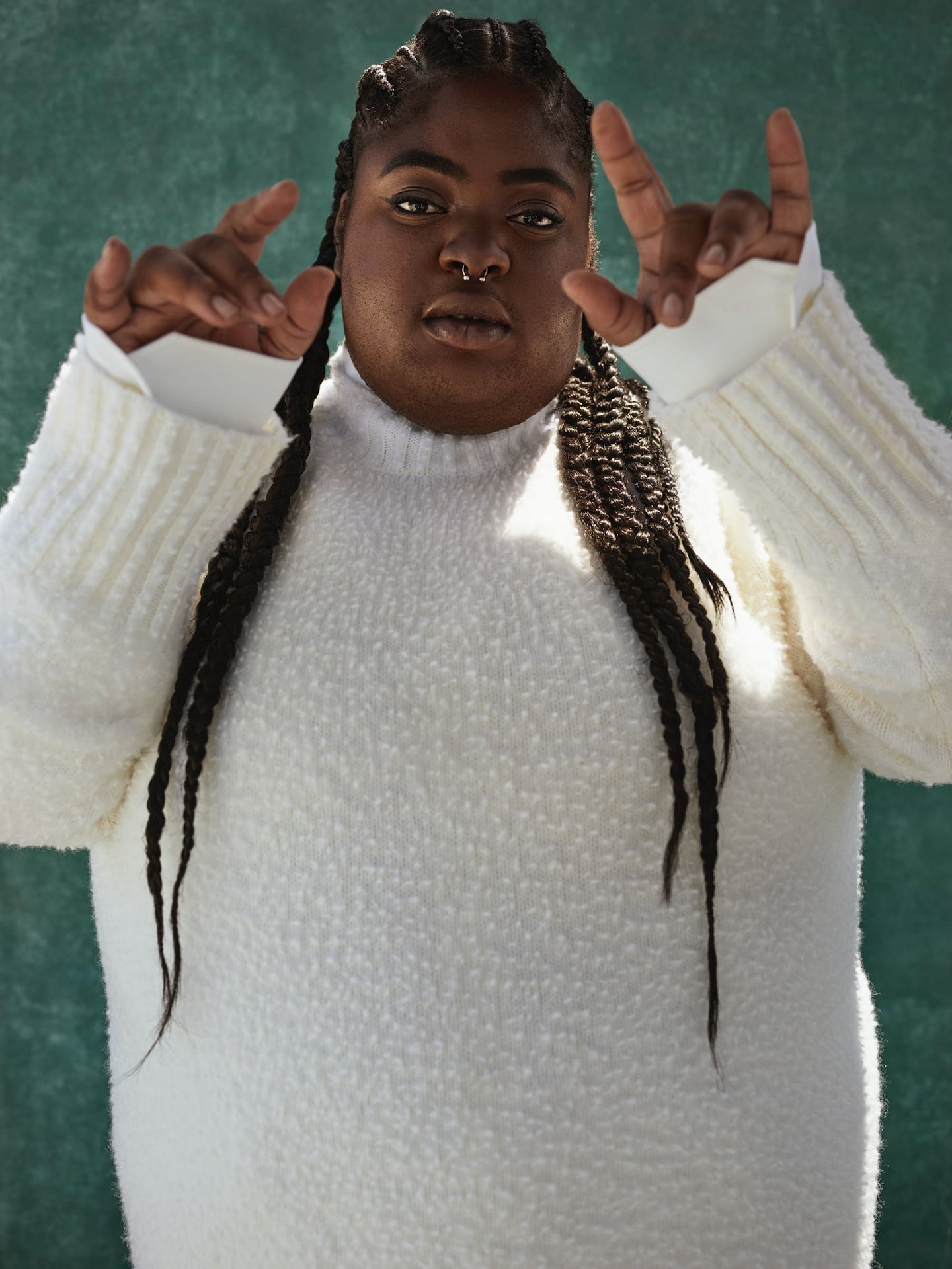
LOS ANGELES, United States — Chika's apartment has all the signs of someone who has just moved in. For one, the small space in North Hollywood is sparsely furnished. The closets are virtually empty. And there are plastic bags and boxes blocking the entryway. Some are recent deliveries from Adidas. Others have seemingly been left unpacked since moving day.
Chika has been a bit busy. It’s late on a Sunday evening in August and an old episode of The Golden Girls is playing on a silenced television in the background. She has just returned to Los Angeles from New York, where she played a gig at the Museum of Modern Art’s renowned summer Warm Up series at its PS1 location, known for showcasing underrepresented voices and breakout talents.
One of the most erudite and expressive female emcees to emerge since Missy Elliott and Lauryn Hill ruled the airwaves in the late 1990s, the twenty-two-year-old began using social media to share her freestyle raps, catching the attention of millions of people, who spread the prodigious young rapper’s blistering rhymes, setting the stage for a hip-hop Cinderella story that is playing out before our eyes.
Her freestyle rant criticising Kanye West in April 2018, after the star rapper praised Donald Trump and posted a photo of himself wearing a Make America Great Again hat, went viral. "It just made me mad," she says. "He just said a whole bunch of reckless shit I didn't like. I was at home and I was like, someone needs to talk to this man, cause he's saying dumb things and validating this man who literally wants all of us to die. And here we are two, three years later." She stops mid-sentence after she realises that this was only last year. "Wait. Was that last year? That feels like yeeeeeeears ago!"
ADVERTISEMENT
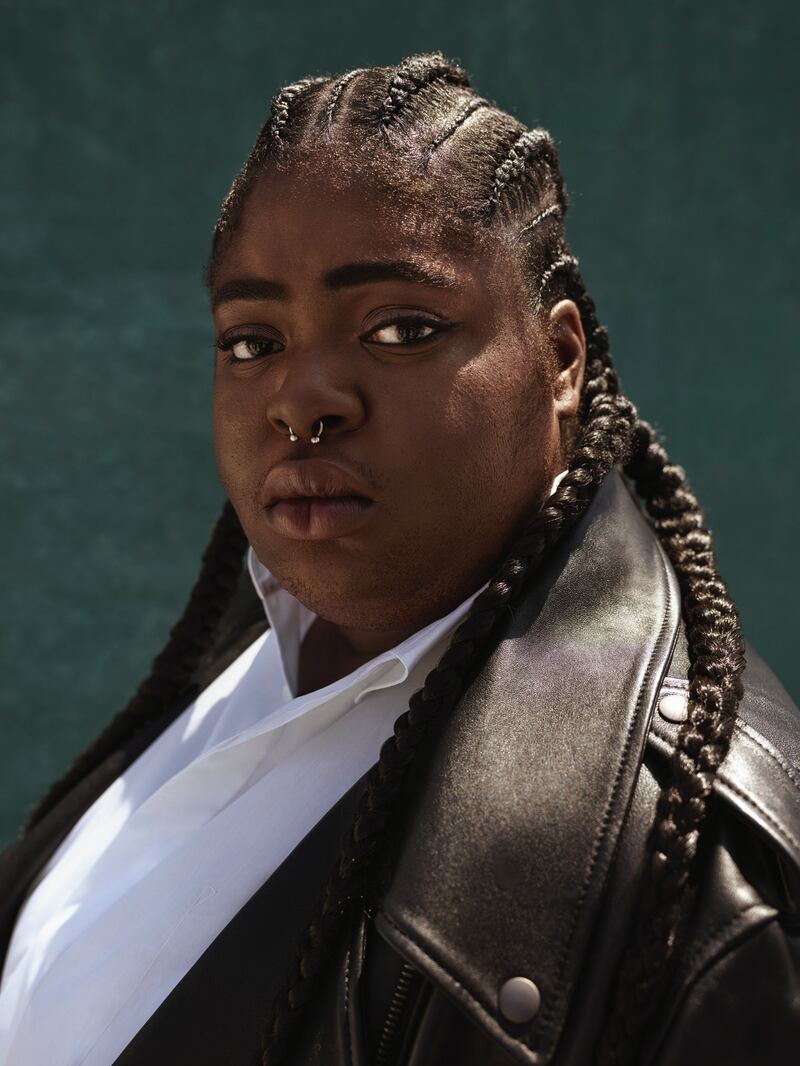
Chika's music often touches on urgent social and political issues | Photo: Catherine Servel for BoF
Indeed. It's been a wild ride for Chika since her Kanye takedown. Her heroes Missy Elliott, the best-selling female rapper of all time, and Cardi B, the reigning female champion of the genre, are already fans — along with Erykah Badu, Sean "Diddy" Combs and Jada Pinkett Smith. Each has discovered Chika's mesmerising freestyle raps and retweeted or regrammed them, spreading her politically-tinged words and earning her more fans.
Barely three years into her career, getting this kind of public endorsement is already par for the course for Chika. That she is coming of age at a time when political divisions are growing and societal values around race, gender and sexuality are shifting, means there is much for this erudite, free-thinking musical phenom to critique, dissect and explore.
Montgomery, Alabama
Jane Chika Oranika — pronounced "Oranicuhh" like her Instagram handle — was born in Montgomery, Alabama, daughter of Dr Emmanuel Oranika and Dr Patience Otuonye Oranika, Nigerian immigrants who moved to the United States to pursue higher education.
“They both have a lot of degrees. That’s just African. Immigrants in general actually,” Chika says, describing her parents’ journey to America, where they met and got married. “We settled in Alabama because my dad got a job at the Department of Transportation, which was really cool for him at the time. But there’s also this long lawsuit where they were being racist towards him and a whole bunch of other people, which I didn’t know about until I graduated high school.”
Indeed, growing up in Montgomery, Chika and her family were sometimes the targets of both subtle and overt forms of racism, something Chika says she did not fully grasp until later.
“It’s the South — the deep, deep South, at that,” she reflects. “So, there’s a still a lot of like underlying discrimination there. Growing up in it — or being born into it — you don’t know it. But once you become educated on the history of where I’m from, you start to pick out certain things. Racism, in Alabama right now, is more nuanced than it was back then. It’s more covert and disguised very well.”
ADVERTISEMENT
Montgomery, Alabama isn’t just Chika’s hometown. It’s the home of America’s civil rights movement. It was in Montgomery in 1954 that the American Baptist minister and activist Dr Martin Luther King Jr. first started preaching from a simple red brick Baptist church on Dexter Avenue. It was in Montgomery in 1955 where King joined forces with Rosa Parks, another seminal figure in the civil rights movement who was arrested for refusing to give up her seat on a public bus to a white person, sparking a year-long boycott against racial segregation in the city’s public transit system. And it was from Selma to Montgomery, in 1965, that Dr King led a series of marches to fight for African Americans to exercise their constitutional right to vote, culminating in the landmark Voting Rights Act.
Steeped in this history, Chika grew up with an awareness of the fight for civil rights from a very young age. “One of my first favourite books when I was in kindergarten was about Ruby Bridges,” she explains. “She was the first African American kid allowed to go to her public school.”
During the New Orleans school desegregation crisis of 1960, white residents kept their children at home, resisting the integration of black children into what were previously all-white classrooms, after a ruling by the Supreme Court which declared racial segregation in public schools unconstitutional. But as young Ruby Bridges entered William Frantz Elementary, she was subjected to taunts and jeers — and even death threats — so she needed to be accompanied into school by United States marshals.
“I remember seeing the image of her escorted in by the cops. Five police officers with a small-ass girl and there’s like white kids and white families just jeering and throwing insults at them,” she recalls. “I think that’s when I, being like a little black girl as well who was currently the same age as she was... I saw myself reflected in that. I think that’s when I began to realise, like, ‘Oh they don’t like us here.' I’m like, ‘That’s okay. Got it.’”
“I don’t know why that stuck with me so much,” she continues. “I think it scared me; like, seeing myself in her; it scared me ‘cause I knew that where it happened was like where I was from.”
Thankfully, Chika’s early educational experiences were nothing like Ruby’s. “I was never the only black person in a classroom,” she says. “I started in a regular public school and it was predominantly black. And then when I got to like, second grade, I was in the Magnet programme ‘for gifted children,’” she says making air quotes.
I'm a child of immigrants, I'm black and I'm a big woman and gay on top of that.
“It was specifically for kids from Alabama, but also international kids,” she continues. “So, we got to be around a lot of different types of people. Every year we would learn about different cultures. They have this thing called theme day where literally every classroom from kindergarten until fifth grade had a country to discuss and we would invite other classes in and learn about said country and the kids from overseas would like, teach us and things like that.”
But that didn’t mean that she didn’t experience more subtle forms of racism growing up. “Adults look at us different,” she says of the way black youth are seen and treated. “There’s this thing that black kids are not allowed to be children. We’re immediately aged in the eye of society. Tamir Rice got killed playing with a plastic gun,” she says referring to a young boy who was killed by the police in Cleveland, Ohio. “He was called a ‘black man’ and he was [twelve], you know what I mean?”
ADVERTISEMENT
“So, I always knew that like, oh, I’m already going to be looked at as the troublemaker. And on top of that I’m like big and black, gay and vocal. If I’m doing something that’s innocent, me being just like a kid, I can tell that I’m already looked at like, ‘Oh, she’s trying to be mischievous,' when in actuality I’m just being a kid, whereas little Mary-Grace can be playful and witty and all that, and it’s looked at as being adorable and cute,” she says.
Big, Black, Gay and Vocal
Chika’s first big brush with controversy regarding her “vocal” nature came at age 17 as a senior at Montgomery’s Booker T. Washington Magnet School, named after the African American education pioneer and known for its focus on developing students with special talents and interests.
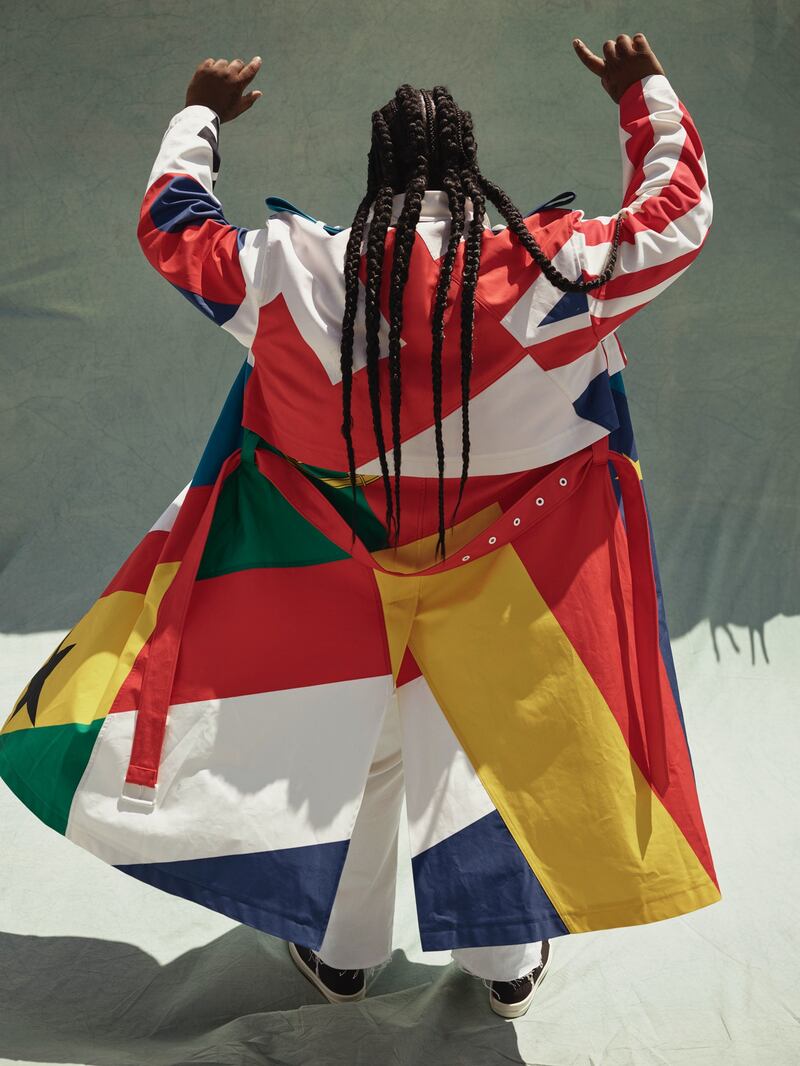
Chika grew up in Montgomery, Alabama, the home of America's civil rights movement |
Photo: Catherine Servel for BoF
The civil rights lawyer Julian L McPhillips Jr. — who for over 40 years has been standing up against police brutality, corporate malfeasance and employment discrimination in Alabama — recalls this moment, which took place just as the Black Lives Matter movement was bursting into the national consciousness, in his 2016 book, Civil Rights in My Bones.
“Given the then recent tragedies [in] Ferguson, Missouri; Coney Island, New York; and Alexander City, Alabama, where innocent young black males had their lives snuffed out by heavy-handed law enforcement officers who suffered no legal consequences, young Jane Chika Oranika decided to use her First Amendment free speech rights. She posted in the school hallway an 8x11-inch flyer, an American Flag occupying much of the space and the bottom portion boldly proclaiming in capital letters and bold print: BLACK LIVES MATTER,” he writes. “Rather than being commended for her initiative and sensitivity, young Jane found herself on the receiving end of school discipline with a four- to five-day suspension.”
“The principal hated it,” Chika recalls now. “It became a huge deal. My principal said I was being divisive, but that was a statement that we all should be able to agree on.”
“One thing that I always heard my mom say is that it was hard at her job because not only is she black, but she’s an immigrant and she’s a woman. And she was like, ‘Those are the three things that people are rooting against,’” she remembers. “And I thought about it, I was like, ‘Well I’m a child of immigrants, I’m black and I’m a big woman and gay on top of that.’”
“I think it takes too much work to be someone else,” she says with regards to her own journey towards self-acceptance. “I realised that me being me is my biggest selling point and people liked me ‘cause I was funny and I was the one who breaks the ice in the room and I was never scared about anything. I realised my value and what I brought to the table and how the differences that I have make me someone that people want to be around. I’ve just been authentically myself — even if that means like, slipping up.”
As the daughter of two highly educated parents, there was a strong expectation that Chika would attend university after graduating from high school. She had been accepted to the Berklee College of Music in Boston. In an Instagram post on March 31, 2015, which pre-dates her social media fame, Chika shared a video of her acceptance letter to the Bachelor of Music degree at the renowned music programme, saying, “I just got into Berklee. And I really don’t know how to take this. And holy crap!”
But tuition fees at Berklee were more than $40,000 per year so she ended up accepting a scholarship at the University of South Alabama instead. “My parents were like, yeah, that’s where you’re going,” she says. “Any place that gives you financial health.”
“I hated it,” she adds without hesitation. “It was the most depressing year of my life. I did not want to be there, and I knew it. I could see the enthusiasm of people who did want to be there, and it was like the clearest distinction between me and them. It was wild. It just amplified it for me, and it made it so much worse than it probably was. I was like, ‘This is not it. This is what it feels like to be alone.’”
There's this thing that black kids are not allowed to be children. We're immediately aged in the eye of society.
Chika knew she needed to drop out. “But I had to talk to my parents about it. I was like ‘College is just applied time. So, let me apply my time elsewhere and I’ll be fine.’ I was like, ‘Please let me do this!’ and they were like, ‘Okay, you have a year.’ And like, three months later, my pages blew up and I got to start doing this.”
It all started the night Donald Trump got elected. “I did a video putting my best friend Sam’s concealer on my face. It was like, white on me,” she recalls. “It’s mostly a video about being American. I did it because my friend was like, literally crying. We both had just got off working at Chipotle, so we didn’t get to watch the election as it was unfolding. We just got home and basically got like, the last five minutes of news. We didn’t have any buffer, like a trigger warning. It just happened and when my friend was sad, I [posted] the video and tweeted it, not thinking it would go beyond my circle. And then afterwards came the shitstorm.”
“It blew up because everyone thought it was hilarious. But then also all the Trump supporters and other racist people came out of the woodwork and they’re like, this is ‘whiteface’ — which doesn’t even exist. They got my account suspended on Twitter for like a week or something. It was genuinely nothing. It’s kind of a blessing in disguise because if my Twitter page hadn’t gotten suspended, I would’ve never posted it on Instagram. And that’s what started my Instagram following. I gained like 17,000 followers overnight. And the next day I started rapping.”
Finding a Vocabulary
“I always knew I wanted to be an artist,” Chika recalls. “I always wrote poetry. I wrote my first song when I was nine. It was called On my Own. As a nine-year-old. I was writing a song about wanting to pursue music and if no one was supporting me, I would do it ‘on my own.’”
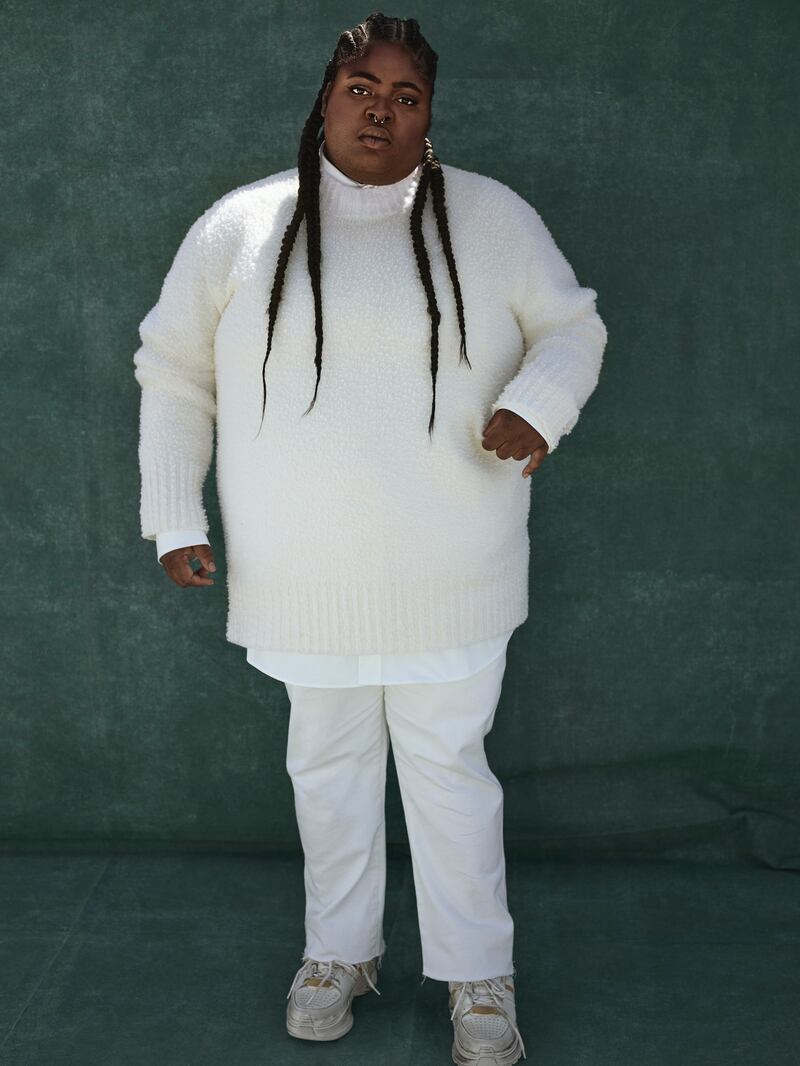
Chika first started writing songs about pursuing a career in music at the age of nine |
Photo: Catherine Servel for BoF
“So, I ended up writing songs all the time. Eventually did some poetry to get my angst out. And then I wanted to incorporate my poetry into my songwriting. I secretly rapped for years. I wrote rap verses but no one knew.”
Eventually, as Chika began to upload her freestyles to Instagram on the issues she really cared about, she began to find her voice. “I noticed things growing up, but it wasn’t until I was older and had more life experience and vocabulary and was able to articulate what it is that would make me be like, ‘Huh?’”
“I have this song called My Whole Mood is Blown,” she says, when asked about her views on body positivity. “Why should I have to talk about it? Like there’s a line in it ‘Guess I’m a brat; I guess I’m a self-hating bitch because I love being rich but don’t want to be fat.’ It’s like the summation of how I feel about it. If we’re really being inclusive, then different sets of people would just be included without having to call attention to it. Everyone is different. So, we’re all different — and no one’s different.”
In another freestyle recorded over Ed Sheeran’s megahit Shape of You, Chika created a Pride anthem. “I hadn’t publicly made comments about my sexuality, even within my friend group, because it never was a thing to me. I was like, ‘Why should I come out the closet? Why is there a closet anyway? I can just be gay.’ But since I hadn’t said anything about it and Pride was coming up, I felt a sense of responsibility to say something and to let people know firmly where I stood because I am a part of this community. We need young gays to know that it’s okay — not just gay people, but trans people, intersex people — being queer in any way, shape or form.”
And in Richie vs Alabama, which she performed for the first time live on the Jimmy Kimmel Show this past May at the invitation of guest host Lena Waithe, Chika addressed the resurging conflict around female reproductive rights in her native Alabama. “Literally people go to jail for a longer time in Alabama for having an abortion than being a rapist… it’s kind of sobering to think about that.”
But it’s a rant on so-called “toxic femininity” posted to her Instagram stories which is one of the most watchable and which shows Chika at her spiciest. Even now, when asked about it she becomes more animated. “As more of butch-leaning woman, I see femininity used to demean each other as women. If someone isn’t feminine — saying they quote-unquote look like a man is an insult; or saying they’re masculine is a dig. In the same way that toxic masculinity can exist — which is when we’re like, critiquing one’s manhood based on how masculine they are not — I think the same way critiquing one’s womanhood on how feminine they are not, it’s the same thing. It’s a different side of the same coin.”
“People lost their shit and hated me saying that,” she continues. “Apparently there’s other connotations with the words toxic femininity that men try to invalidate the experience of women by saying toxic femininity. But as a woman and as a queer woman, I know what I’m talking about. I know what my view of toxic femininity is. I just got fed up with it. I was tired of people being like, ‘that’s not a thing.’ Basically doing the same thing that other oppressors do to us.”
My dream was to take over the world... to have full world domination — in a good way — and do positive things with it.
“Why would you tell me that my experiences are invalid when you don’t listen — you just can’t see it from my perspective. Is that my fault? If you use your femininity as a weapon, it’s toxic femininity, period. I think that we all have a place and we should all feel welcome and we should all feel comfortable. And, also, we should all be able to know that our experiences are valid. And if someone else doesn’t experience that, it doesn’t mean that it’s not true.”
Advice for the Fashion Industry
It wasn't long before Chika's poetic raps and rhymes on the issues defining our culture caught the attention of brands like Calvin Klein and Adidas, keen to connect with a woke generation of young people who connect with brands that have an aligned set of values and purpose — and who, like Chika have grown up on a diet of social media during the age of Donald Trump and growing polarisation in politics and wider culture.
Earlier this year, Calvin Klein unveiled Chika in its #MyCalvins advertising campaign, alongside much more established names including Shawn Mendes, A$AP Rocky, Bella Hadid and Kendall Jenner, shot by Mario Sorrenti, who also photographed a 17-year old waif-like Kate Moss in her Calvin Klein underwear in the early 1990s. Much has changed in youth culture since then, with inclusion coming at the top of the list.
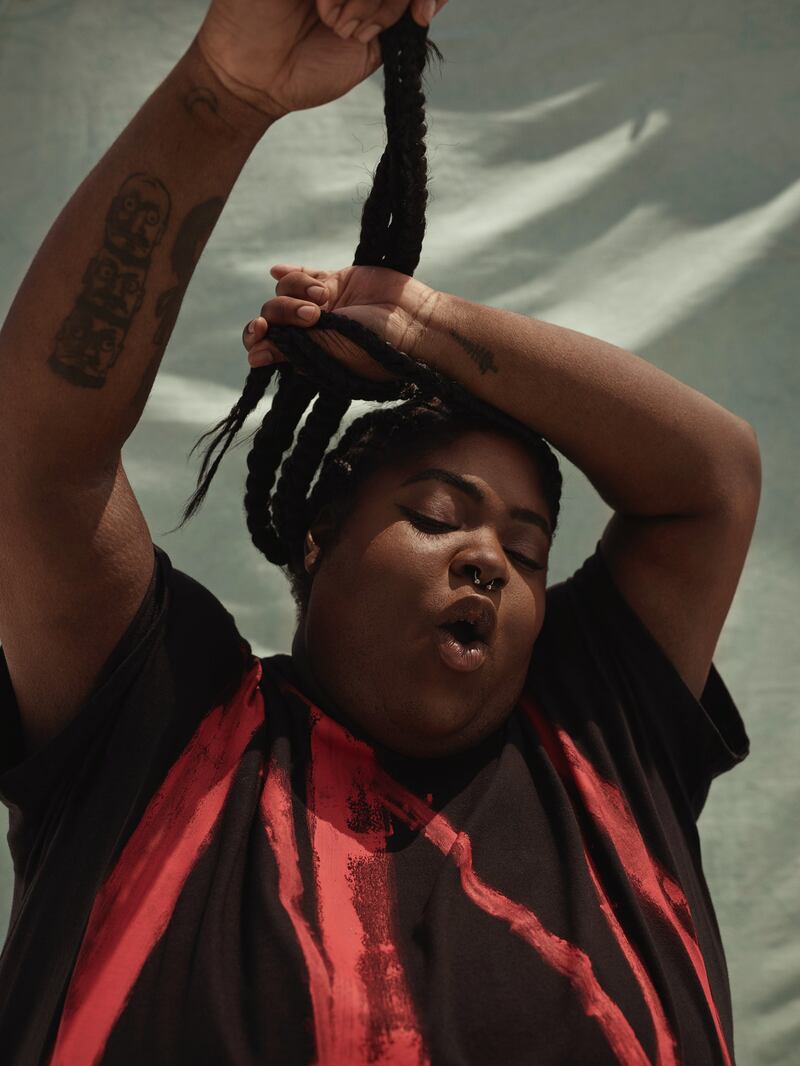
Since her rise to fame, Chika has caught the attention of brands like Calvin Klein and Adidas |
Photo: Catherine Servel for BoF
"The CK brand has always been known for discovering new talent and being a platform for self-expression so I guess we are doing our best to honour a humbling legacy and connect it to our day and age," says Marie Gulin-Merle, former chief marketing officer at Calvin Klein and chief digital officer at PVH Corp.
“The attraction to Chika and the desire to work with her stemmed first and foremost from her raw talent as a rapper and musician,” she continues. “She was entirely self-published at the time, not signed to a label, and only 21, but we had no doubt that she was about to be hugely successful. We were blown away by how considerate, thoughtful, intelligent, eloquent and articulate she was about absolutely everything.”
But inclusivity marketing comes with risks, and can easily be perceived as tokenistic — something that is not lost on Gulin-Merle or Chika.
“In the fashion industry, we see the pendulum has shifted away from a top-down approach to a more collaborative approach. Consumers want to be actively involved in the creative process and they’re demanding to see themselves represented in any form of content,” says Gulin-Merle. “What Chika represents is a moment in fashion’s history where brands can no longer afford to tune out what their consumers are telling them, especially in this era of cancel culture.”
“The fashion industry is moving in the right direction but has to be careful not to get too full of itself and to not use inclusivity as a trend, because fashion inherently is trends,” adds Chika. “And so when it comes to like having more disabled representation and plus-size models… although we need these people to be seen, don’t just do it because you saw the next brand doing it; trying to outdo each other when it comes to inclusivity. That’s going to be so counterproductive and ultimately push us in the wrong direction.”
The fashion industry [...] has to be careful [...] not use inclusivity as a trend, because fashion inherently is trends.
When the Calvin Klein campaign dropped, some naysayers observed that Chika was the only plus-size person in the mix. So did participating in the #MyCalvins ad feel like a trend — or did it feel authentic to Chika?
“Love you Calvin — but both,” she says with her characteristic honesty. “It felt necessary. So regardless of if it was a trend, I felt the need to do it. But also, there shouldn’t have just been one of me. I shouldn’t have been the only plus-sized one. And I love Calvin, but that could easily have been misconstrued or misinterpreted like, ‘Oh, like she’s our token fat girl.’”
“I don’t think they did it to make it a trend at all,” she continues. “But I do think that’s the fine line you toe within the fashion industry, because it’s like, damned if you do, damned if you don’t. As the person who took on that responsibility and like, seeing myself in my underwear on a billboard, I know my intention behind it,” she says.
“While we work very hard to make sure that our campaigns and all other content are considerate of diversity and inclusion, the unfortunate reality is that this is still a relatively new practice in our industry and I think we, as an industry still have a lot of work to do,” adds Gulin-Merle. “Our approach at Calvin Klein is to listen very closely to our communities and hear them out when they tell us we’re falling short. For example, we’ve gotten a lot of feedback that our community would like to see plus-size men better represented, so we know that’s an area where we can do better.”
The industry can also be more aware of how gender expression is changing, and this needs to be better reflected in how products are described and how retail stores are laid out. “There’s no such thing as men’s clothing or women’s clothing. I like the idea of everyone dressing how they feel and like, what makes them happy. Like this outfit, it wasn’t hard to find, but it also wasn’t in the women’s section — and it looks fine on me,” Chika says, pointing to her black hoodie and joggers.
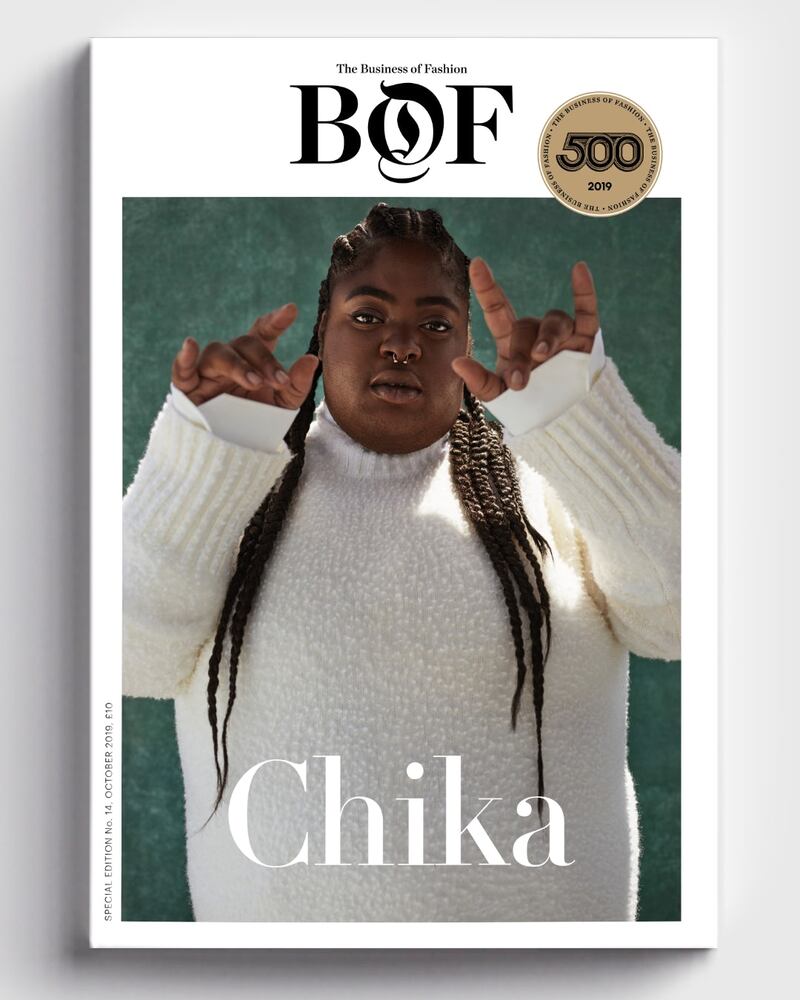
BoF 500 Print Edition with Chika Oranika on cover | Photo by Catherine Servel for BoF
“So when it comes to certain cuts — like me going to the women’s section, it’s always going to be V-neck because [they assume] every woman wants their cleavage accentuated — which is not true. I would like something that makes me feel comfortable and something that isn’t hyper-sexualised. We can have feminine clothing, we can have masculine clothing, we can have unisex clothing — but it doesn’t need to be ‘this is men’s, this is women’s.’ I should be able to find shirts that are masculine — but still fit boobs.”
As for the racism scandals that have engulfed the industry over the last year, Chika is unequivocal. “A lot of times racism comes from ignorance, and a lack of respect,” she begins. “So if you saw something and someone was like, ‘Hey this is a little bit…’ and you looked at it and you still let it go through, it’s because at the end of the day you don’t have any respect for the people that it may offend.”
“The reason we get into these situations is because no one wants to educate themselves. We need more inclusivity and diversity on fashion boards because if you had a black person in the room, they would’ve told you exactly why the fuck you can’t put that out, how that was going hurt your brand,” she advises. And not just black people, but also Asian people, gay people, trans people.”
Our conversation is coming to an end, but there is clearly so much more that Chika has to say — luckily she has her first EP coming out in October, after signing with Warner Music earlier this year. “It’s a real insight into me and what kind of news that I would like to put out. Where everyone’s so used to like, the Instagram verses, this is the first time [I] get to be in control [of] my narrative and like, show people who I am rather than having them infer from what they’ve seen already.”
“That’s gonna genuinely make me and my fans closer. I think they’ll understand me more,” she concludes. “And from there comes like my dream, which is being able to be artistically free and do what I want because people understand it and you understand where I’m coming from. My dream was to take over the world. My dream is to have full world domination — in a good way — and do positive things with it.”
This article appears in BoF’s latest special print edition.
To receive a copy of BoF’s latest special print edition — including the complete index of BoF 500 members — sign up to BoF Professional before December 1, 2019 and enjoy additional benefits including unlimited access to articles, daily members-only insights and analysis and more with your annual membership.
Related Articles:
[ What Gucci Learned From Dapper Dan and Its Blackface CrisisOpens in new window ]
[ Dismantling the Legacy of Racism in America: DeRay MckessonOpens in new window ]
[ How to Address Fashion's Racism ProblemOpens in new window ]
From analysis of the global fashion and beauty industries to career and personal advice, BoF’s founder and CEO, Imran Amed, will be answering your questions on Sunday, February 18, 2024 during London Fashion Week.
The State of Fashion 2024 breaks down the 10 themes that will define the industry in the year ahead.
Imran Amed reviews the most important fashion stories of the year and shares his predictions on what this means for the industry in 2024.
After three days of inspiring talks, guests closed out BoF’s gathering for big thinkers with a black tie gala followed by an intimate performance from Rita Ora — guest starring Billy Porter.